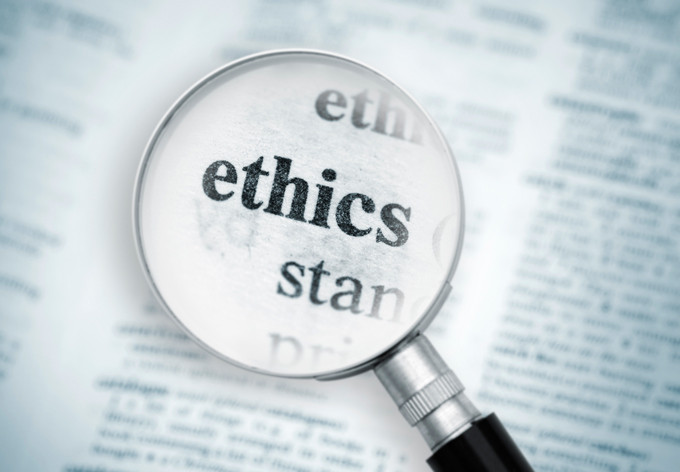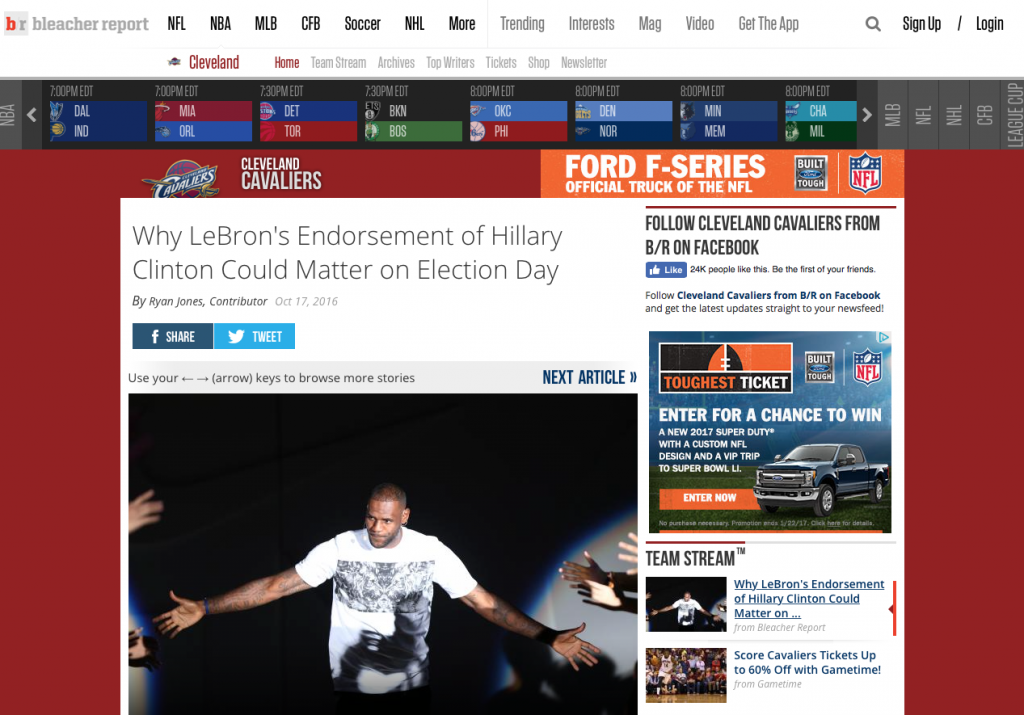
Image: © Antoniooo / Shutterstock
In partnership with the Rock Ethics Institute, Penn State Today’s feature column, “Ask an Ethicist,” aims to shed light on ethical questions from our readers. Each article in this column will feature a different ethical question answered by a Penn State ethicist. We invite you to ask a question by filling out and submitting this form. An archive of the columns can be found on the Rock Ethics Institute website.
By Daryl Cameron, Assistant Professor of Psychology
Question: Do U.S. presidents need empathy in order to govern effectively?

Daryl Cameron is an ethics core faculty member in the Department of Psychology and the Rock Ethics Institute. Daryl’s research focuses on the psychological processes involved in empathy and moral decision-making. Much of his work examines motivational factors that shape empathic emotions and behaviors toward others, particularly in response to large-scale crises (e.g., natural disasters, genocides) and in intergroup situations. (Image: Penn State)
An ethicist responds: As Election Day nears, voters are debating the qualities that make for an effective leader. One contested quality is empathy: the ability to understand and resonate with the experiences of others. Does it matter if a president can relate to you and care about what you are going through? On the one hand, empathy may enable democratic governance by increasing awareness of different points of view. On the other hand, empathy might cause partiality and favoritism to particular points of view, clouding objectivity and fair judgment.
The issue is timely. In an August Quinnipiac University national poll, Republicans and Democrats rated the ability to “care about average Americans” as one of the top traits for a presidential candidate to have. Respondents rated Democratic nominee Hillary Clinton as higher on caring than Republican nominee Donald Trump, but this was split along partisan lines, with respondents rating their own party’s candidate as more caring. In a more recent poll after the first presidential debate, likely Pennsylvania voters rated Clinton higher than Trump on whether they “will look out for people like you”, but again split along party lines. People want leaders with empathy, and believe that their preferred leader excels at it. Indeed, some research finds that people view empathy as a “moral signal”: When they perceive someone’s behavior is moved by empathy, they judge that person as having higher moral character.
Although it is debated how much empathy perceptions impact election outcomes, it is clearly a trait that people want their leaders to have. Vice President Joe Biden claimed that Trump lacks the empathy and compassion to be a sound leader, and many others criticized Trump for his failure to sympathize with the Khan family, who lost their son fighting for American forces in Iraq. More recently, Trump’s remarks about the physical appearance of model Alicia Machado, and about assaulting women, have been judged as indicating a lack of empathy. On the other hand, Clinton has been criticized for failing to resonate with voters, and for using empathy superficially; for instance, when her campaign posted that she was just like an abuela (Spanish for grandmother), many said this failed to appreciate the unique experiences of Latina women. Clinton was suggested to lack empathy for rural Americans when she called some Trump supporters “a basket of deplorables,” even as she was explicitly encouraging listeners from both parties to be more empathic across group divides. Presidents throughout history are expected to excel at empathy — to “feel your pain,” as Bill Clinton famously put it.
Although empathy is seen as desirable, does it promote sound decision-making? This question is hotly debated, especially when it comes to leadership. Many politicians extol the virtues of empathy — Barack Obama has framed the “empathy deficit” as a national problem and encouraged students to expand their empathy, and Hillary Clinton has suggested that empathizing with others can make us more powerful peacemakers internationally. Echoing these calls, models of ethical leadership suggest that understanding the experiences of others can help leaders to transform and elevate the values and moral climate of their communities.
Yet, empathy may also seem to cloud objective judgment. President Obama has claimed that good judges need empathy to be effective, and although Sonia Sotomayor said her personal experiences would give her a unique connection to the lives of others, she also reiterated her impartiality during the nomination process. Recent critiques suggest that empathy may actually promote parochial biases and injustice, by attuning us to the plight of those who are similar to us, at the expense of everyone else.
But does empathy always produce partiality? Not necessarily.
Yes, much work shows that empathy is reduced for people who are dissimilar to us, even when these differences are trivial and minimal. However, this intergroup empathy gap may be malleable and reflect our own choices to curb our empathy, not an inevitable limitation on empathy itself. Many studies reveal that changing how people think and relate to empathy can remove make empathy less partial. Intergroup empathy gaps go away when people believe that empathy is emotionally rewardingrather than exhausting; that empathy can be incrementally improved as a skill; and that empathy is valued by their peers. So too when people have positive interactions with dissimilar others. Empathy may only play favorites when we want it to.
Overall, then, there is not a simple relationship between empathy and leadership. People want empathic leaders, because this can signal moral character, and such leaders may be better able to understand and serve their communities. Although empathy can lead to partiality, this may reflect our own choices of where to extend empathy and not some built-in “glitch” in empathy itself. Instead, we should ask: who chooses to feel empathy, and why? Empathy can be a decisive moral force. In understanding why people choose to expand or contract empathy, we can learn about the moral values of those who aspire to lead at the highest level.
Daryl Cameron is an ethics core faculty member in the Department of Psychology and the Rock Ethics Institute. Daryl’s research focuses on the psychological processes involved in empathy and moral decision-making. Much of his work examines motivational factors that shape empathic emotions and behaviors toward others, particularly in response to large-scale crises (e.g., natural disasters, genocides) and in intergroup situations.
Have a question? Submit it here.
Note: The “Ask an Ethicist” column is a forum to promote ethical awareness and inquiry across the Penn State community. These articles represent the interests and judgments of each author as an individual scholar and are neither official positions of the Rock Ethics Institute nor Penn State University. They are designed to offer a possible approach to a subject and are not intended as definitive statements on what is or is not ethical in any given situation. Read the full disclaimer.





